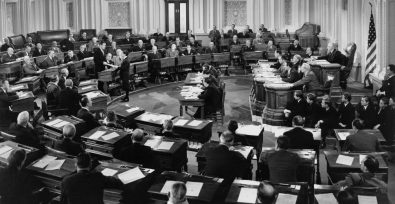H&M stands accused of not living up to a pledge to pay garment workers a living wage, forcing factory employees to work excessive hours in order to survive.
The Clean Clothes Campaign (CCC), an alliance of labor unions and NGOs, interviewed 62 workers in six H&M supplier factories in Bulgaria, Turkey, India, and Cambodia. They discovered that none of the workers earned anything near a living wage to cover basic needs of their families.
Related Campaign: Urge Australia to pass a strong modern slavery law.
This is particularly alarming as H&M made a commitment in 2013 to ensure its suppliers would pay a living wage to some 850,000 textile workers by 2018.
“H&M needs to take action immediately to stop the scandal of poverty wages and workers’ rights violations,” said Bettina Musiolek of the CCC.
Thomson Reuters Foundation reports:
The CCC report found that workers in H&M supplier factories in Cambodia earned less than half the estimated living wage, dropping to about a third for those living in India and Turkey.
Many worked overtime hours that exceeded the legal limit without being properly paid, while others were only paid the minimum wage if they worked extra hours and met their quota, which the United Nations defines as forced labour, the CCC said.
“Instead of empty public relations talk, we want to see transparent changes in the real wages of workers in H&M’s supply chain,” Judy Gearhart, executive director of the U.S.-based International Labor Rights Forum (ILRF), said a in statement.
The ILRF urged H&M to publish a road map with time-bound, measurable wage increase targets and outline how they will change purchasing practices to ensure workers get a living wage.
H&M has refuted the CCC’s findings, arguing that it has reached at least 600 factories and 930,000 garment workers with its fair living wage strategy.
Notably, an H&M spokesman said, “There is no universally agreed level for living wages, and wage levels should be defined and set by parties on the labour market through fair negotiations between employers and workers representatives, not by Western brands.”
Still, Peter McAllister of the Ethical Trading Initiative, a group of trade unions, companies, and non-profits of which H&M is a member, says that living wages for garment workers needs to be addressed across the manufacturing industry.
“The issue of living wages is bigger than one brand, and too few companies have initiatives to drive up wages,” he said.








Freedom United is interested in hearing from our community and welcomes relevant, informed comments, advice, and insights that advance the conversation around our campaigns and advocacy. We value inclusivity and respect within our community. To be approved, your comments should be civil.